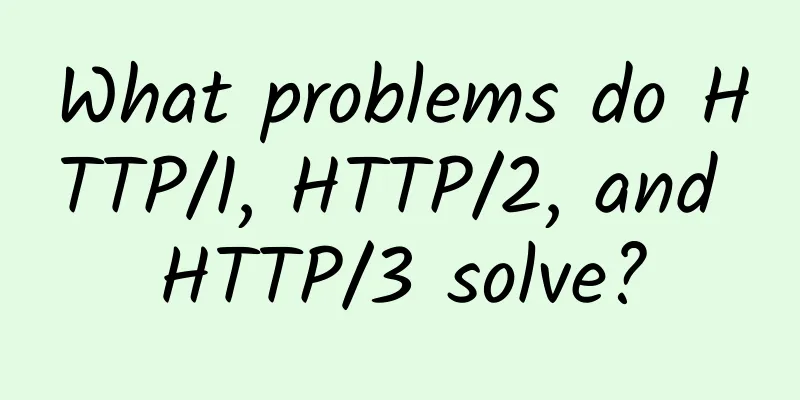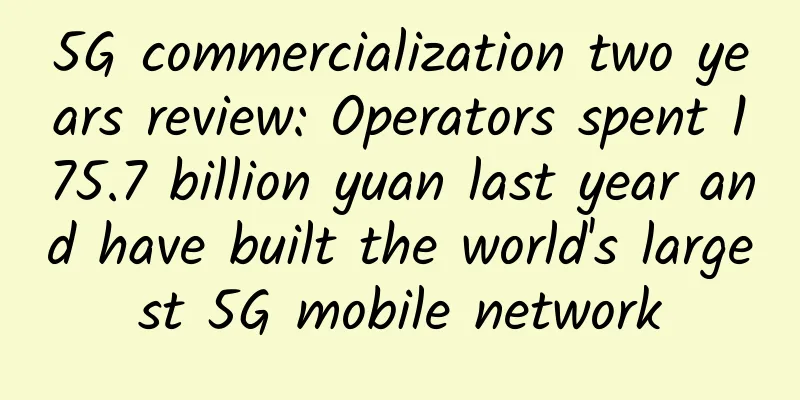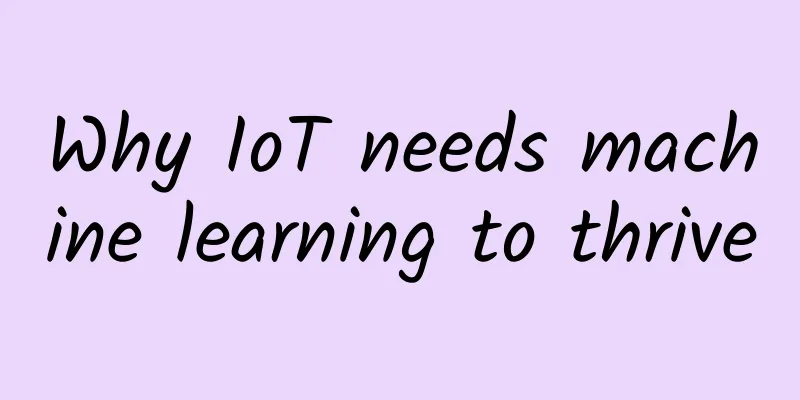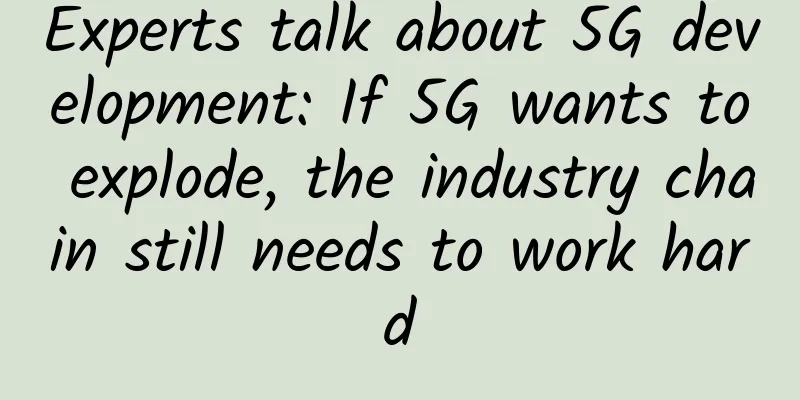What serious consequences will arise from the “winner takes all” approach among Internet giants?

1. “Winner-takes-all” and multi-sided platforms will lead to “creative destruction”The Internet is a great achievement of the 20th century. It has greatly promoted the progress of the world, injected vitality into society, economy and life, promoted the development of cloud computing, big data and artificial intelligence, and also spawned a new economic model. The business model that Internet platform companies rely on, which is the multilateral platform economy, is the most representative business model in the Internet era. The author's work experience mainly comes from the fields of film, television and music, and he had many pleasant experiences in the first 30 years of his career. From the perspective of an artist, he uses cases to illustrate the impact of the Internet on artworks, workers in related industries, and even on American culture. The author's first case is to analyze the disastrous impact of Napster music sharing software on the music industry. Based on his personal experience in the music industry, he believes that the distribution of product revenue generally conforms to the Pareto curve, also known as the 80/20 rule, that is, 80% of a movie or record company's revenue comes from 20% of its products. However, by 2015, in the music industry, 80% of revenue came from 1% of the works. A few people became very wealthy, while most musicians made little or no money, because the very nature of search engines pushed the most popular items to the top of search results, reinforcing this winner-takes-all situation. The essence of "winner takes all" is the effect of Metcalfe's law of the Internet. Metcalfe's law states that the value of a network is proportional to the square of the number of users. Experts in the fields of economics and management have also conducted research on network effects, laying the foundation for the research of multilateral platforms. In 1876, Bell invented the telephone. The more people use the telephone, the higher its value. This phenomenon is called direct network effect. Economists further divide the benefits of networks into direct network effects and indirect network effects. In economics, in order to explain indirect network effects, users are divided into different groups according to their attributes. If the value of a platform to a certain group depends on how many members of other different groups participate, then this network effect is called an indirect network effect. If everyone participating in the platform looks the same, the indirect network effect is not obvious. For example, the PC era was a one-sided market, where software developers had to both develop and sell software. In the mobile Internet era, Steve Jobs created the Apple ecosystem and opened up a new model for software stores, which is a typical multilateral market model. Ultimately, users choose apps through the Apple App Store, and app developers strive to enter the Apple App Store, forming a positive indirect network effect between the two types of users, which has brought huge benefits to Apple. The App model has gradually become a popular software development and deployment model. Similarly, in the catering industry, Dianping, Yelp, etc. provide great services to restaurants and customers; in the transportation service industry, Lyft and Uber in the United States have become important multilateral platforms. However, multi-sided platforms can produce the so-called "creative destruction" effect, which sometimes eliminates other traditional jobs while creating new job opportunities. For example, the emergence of Internet news has reduced the market value of traditional newspaper companies. The multi-sided platform market is a product of the Internet, and the characteristics of the Internet are fully demonstrated on this platform. The characteristic of the Internet is that it can allow the scale of leading enterprises to grow very large. Even if there is only a slight advantage, it will form a huge or even monopolistic advantage over time. At this time, it is necessary to study regulatory methods and rules to guide the healthy development of the multilateral platform market, formulate reasonable multilateral platform competition strategies while developing unicorn enterprises, solve consumer data security issues, prevent the disorderly expansion of capital, and protect the interests of small and medium-sized enterprises and individual consumers. 2. Why it is not true that the Internet promotes employmentAlthough the desire of multi-sided platforms is to "eliminate all gatekeepers", what really happens is that new gatekeepers (multi-sided platforms) replace the old gatekeepers. The book mentions that although YouTube is the world's largest streaming music website with a 52% market share, it only contributes 13% of the revenue to the music industry. Time Warner's market value is less than one-tenth of Google's, and the balance of power in the entertainment industry has tilted towards multi-sided platforms. A survey of the U.S. workforce in emerging industries shows that it is not true that the Internet promotes employment. Because technology companies account for about 21% of the S&P 500 (a stock index that records 500 listed companies in the United States), but they only employ 3% of the U.S. workforce. This will lead to stagnant living standards, increased inequality, declining education levels and an aging population in the future. The "Uberization" of labor breaks down work into outsourced tasks and breaks wages into small payments. Workers on the platform have no protection and no benefits. Sarah Kingsley, a researcher at the University of Massachusetts, found that the real problem with the crowdsourcing work model is global labor arbitrage, and capital is always looking for the lowest-priced labor in the globalized economy. The author analyzes the profound impact of the Internet on several industries and American society through a large number of examples. From the perspective of film and television music creation, although data can well show people the current popular trends, it is not helpful in guiding the direction of artistic development, because great breakthroughs come from things that have never been done before. The reliance on data has caused Hollywood and film and television companies to fall into the cultural quagmire of remakes and sequels, because in the Internet age, only works recognized by big data can succeed. The author hopes that companies like Facebook and Google will change their business models to help thousands of artists create a sustainable cultural environment while protecting user privacy - rather than just making a few software designers billionaires, and better play the role of creative artists in society. The author believes that in order to create a new era of artistic renaissance, a truly good public media system is needed, but the performance of public television in the United States is not satisfactory. The only way to get rid of the crisis brought about by technology is to guarantee universal basic income in some form, implement free medical care and shorten working hours. Some employers in Sweden have reduced their employees' working hours to 6 hours, and Finland is also trying an income guarantee system. 3. Technology is a double-edged sword, an angel and a devilFrom the perspective of social operation, in the United States, platform giants can influence national legislation and even directly interfere with social operation. The author believes that Google, Facebook and Amazon rely on political lobbying and public relations to consolidate their unique market position. Since regulation is dominated by the US government, as long as the voices in Washington that "regulation will inhibit growth" prevail, monopolies will spread freely. In 2012, the Stop Online Piracy Act (SOPA), supported by the US film and music industries, was a legislative proposal aimed at combating copyright infringement by restricting access to websites that host or support the trade of pirated content. The proposal specifically targeted search engines such as Google that were associated with pirated websites. However, the day after the proposal was introduced, Google placed a picture at the top of its search homepage containing the words "censorship" and "tell congress", which would send an email directly to Congress after users clicked it. Congress's email server was overwhelmed, and finally forced House Judiciary Chairman Lamar Smith to withdraw the proposal. Technology is a double-edged sword. Some people think it is an angel, while others think it is a devil. The author believes that Internet elites need to get rid of the influence of liberals. Tim Berners-Lee, a pioneer of Internet technology and the inventor of the World Wide Web, said at the Distributed Web Summit: The Internet was once great, but online espionage, blocking websites, stealing other people's content, linking to wrong URLs, etc., completely violate the spirit of the Internet to help people maintain integrity and innovation. 4. The “Five-Dimensional World” will bring greater changes and impactsTechnology is developing, and society must continue to progress. We will continue to encounter problems in the process of development, but we must move forward and solve problems in the process of development. Recently, the metaverse has become a new hot topic. From a rational perspective, the metaverse is another extension and expansion of cyberspace. The introduction of augmented reality (AR)/virtual reality (VR) not only adds a new type of terminal on the basis of PCs and smartphones, but more importantly, adds a new bridge and new interface connecting the virtual world and the real world. There is not only the replacement of the virtual world with the real world, but also the mixing of the real environment and the virtual environment, and the superposition of the virtual world on the real world. When the virtual world and the real world merge with each other, various problems will still arise. We must remain rational, analyze and solve problems in a timely manner, and propose solutions to problems from multiple aspects such as policies and industry rules. While ensuring the steady development of the industry and technology, let technology better serve mankind. Imagine the future, the "five-dimensional world" is coming to us. The real world we live in is a four-dimensional world. The first three dimensions are the longitude, latitude, and altitude of the geographical space, and the fourth dimension is time. From ancient times to the future, history is a process of continuous change. We can trace back a certain period of history to a certain extent, but we cannot fully present the history of a certain period. We call the continuous change from the real world to the world of blending reality and virtuality the fifth dimension. Complete reality is the zero point of this dimension, and the complete blending of reality and virtuality is at infinity. This axis is a continuous or discrete change process. In the early days of the Internet, email addresses and phone numbers were the beginnings of the virtual world. Now, more and more content is depicting individual virtual characteristics, including not only social accounts, communication records, online shopping records, flight records, and travel records, but also sensors carried, auxiliary external force devices, etc. Digital twins and metaverses will advance the technology of the virtual part, and ultimately achieve a complete integration of reality and virtuality. The Internet has brought us tremendous changes and created huge impacts. The five-dimensional world may bring even greater changes and impacts to social rules and world civilization. It is worth our in-depth thinking and preparation. |
<<: How many hurdles will computing power development have to overcome in the future?
>>: Industry 4.0 drives the need for 5G and private networks in the enterprise
Recommend
BGPTO: Singapore dedicated server $49/month, E3-1230v3/16GB/480G SSD/10M (CN2)
BGPTO currently offers a special discount code fo...
2018 China Enterprise Digital Transformation Seminar was held, Ruijie helped enterprises break through digital transformation
On August 24, the 2018 China Enterprise Digital T...
Integrating SD-WAN and UCaaS has both benefits and challenges
Today, communications come in many forms, includi...
EU plans to develop regulatory "blacklist" Facebook and Apple may be on the list
It is said that the EU's move is aimed at lim...
Computing power network has become a new engine for digital development. How can operators make use of it?
At present, the digital economy has become the to...
DMIT: Hong Kong CN2 GIA/Japan CN2 GIA line large bandwidth annual payment starting from US$199
DMIT.io has launched this year's summer promo...
Proactive monitoring without embedding: a best practice for proactively perceiving user experience
The business world is like a battlefield. Whoever...
The road to communication - what do bridges, gateways, switches, and routers mean?
In network communications, there are several very...
The three major operators delisted from the US and returned to the A-share market
Recently, China Mobile issued an announcement sta...
Ten tips to increase page browsing time
[51CTO.com Quick Translation] Increasing the brow...
In the 5G and edge era, how can telecom operators improve energy efficiency?
Energy efficiency is no longer a cost and complia...
What is blockchain and what impact does it have on data centers and cloud computing?
Today, more and more applications are causing the...
LoRa upgrade! Supports satellite communications. What new applications will it unlock?
In the second half of 2021, the British space sta...
The 10 most powerful companies in enterprise networking in 2021
[[409960]] Last year, the global spread of the ep...




![[Mid-Autumn Festival/National Day] CUBECLOUD: 30% off for Lite series/15% off for Pro series, available in CN2 GIA Hong Kong/CN2 GIA Los Angeles](/upload/images/67cabd66b8264.webp)




